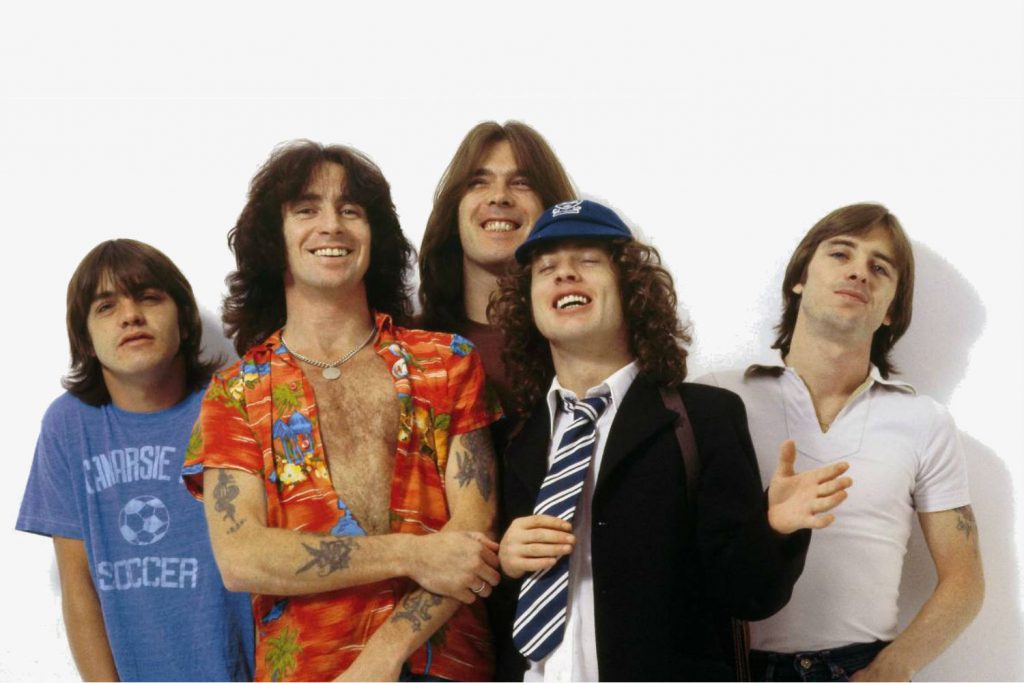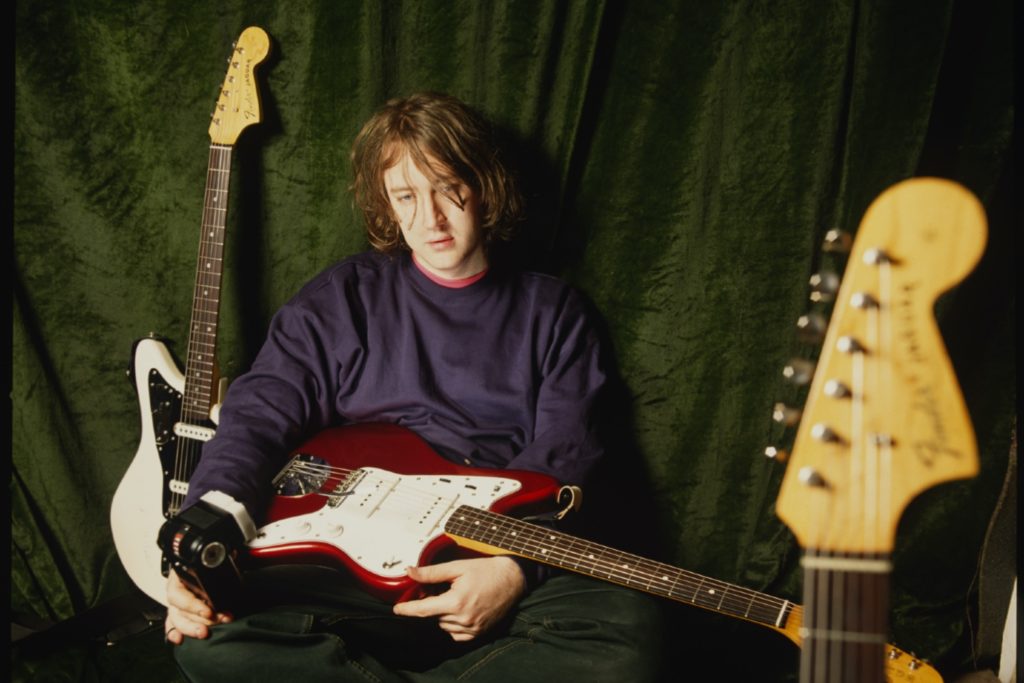Why guitarists like suing eachother… and others!
Flattery, imitation or straight out plagiarism? Sometimes the line does get crossed, and lawyers get involved. A case of not enough recognition given, or wanting to stop someone from using a name?
Because of the embarrassment and expenses involved, most opt for settling out of court. Other times, one party decides to make a statement out of it. Here are eight examples of famous court trials between fretmeisters!
JIMMY PAGE VS. JAKE HOLMES
This decades-old case was finally settled as recently as August 2025, over “Dazed And Confused”, between Led Zeppelin’s Jimmy Page and New York folk singer songwriter Jake Holmes.
This month a US court was told the two had settled, although terms were not revealed.
Holmes who wrote albums for Frank Sinatra and The Four Seasons, penned “Dazed And Confused” in 1967 about a bad acid trip for his LP The Above Ground Sound Of Jake Holmes.
Read up on all the latest features and columns here.
Village Gate
That year he and Page’s Yardbirds played together at the Village Gate theatre in New York, and the British axeman was struck by the song
In the documentary Lost Rockers, Holmes said: “We were on the bill with The Yardbirds.
“We performed it there and blew the place apart with that song, and that’s when Jimmy Page saw it.
Gather
“From what I gather from The Yardbirds, Page sent somebody out to get my album.
“He did a great job, but he certainly ripped me off.”
The Yardbirds did the song live, with Page using a bow on it.
Zeppelin
But Zeppelin recorded it for their 1969 album. Page felt he had changed the song around enough to claim it as his own.
Holmes had contacted Page about the matter but was either fobbed off or ignored. He took it to court in 2010.
The decision made a year later saw the Zeppelin song changed its writing credits to “Jimmy Page, Inspired By Jake Holmes.”
Brown Spots
But the brown spots hit the wall with the release of the Becoming Led Zeppelin documentary, which featured footage of the Yardbirds playing “Dazed And Confused” and had Page as the only songwriter.
Another court case was filed.
Page of course has been involved in other cases including Randy California over the intro to “Stairway To Heaven” and Willie Dixon regarding “Whole Lotta Love.”
JOE SATRIANI VS COLDPLAY
In December 2008 Joe Satriani accused Coldplay’s “Viva La Vida” as being too close to his own “If I Could Fly” from Is There Love in Space? (2004).
Coldplay’s response was “With the greatest possible respect to Joe Satriani, if there are any similarities between our two pieces of music, they are entirely coincidental, and just as surprising to us as to him.”
The case was dismissed in 2009 by the California Central District Court with each party paying their own costs.
Like Others
“Viva La Vida” was accused of sounding like others.
Cat Stevens/ Yusef Islam had also been muttering that it sounded like his “Foreigner Suite” and that he had his lawyer on speed-dial to launch a suit depending on how Satriani went.
Creaky
US band Creaky Boards had earlier claimed Martin heard their “The Songs I Didn’t Write” at a concert in October 2007 and posted a video showing the similarities.
But the wheels fell off this when Coldplay showed Martin had been recording in London in October, and the demo of “Viva La Vida” had already been made in March.
The next sound you heard was Creaky Boards dropping the suit and suggesting the two pieces of music was inspired by video game The Legend of Zelda.
Argentinean
Music fans also suggested the Coldplay song was inspired by 2002 track “Francés Limón by Argentinean band Los Enanitos Verdes.
In a documentary for Sveriges Television (2011), American music professor Dr. Lawrence Ferrara showed that the melody of all these songs stemmed back to “Se Tu M’Ami”, written by 18th century Italian composers Alessandro Parisotti and Giovanni Battista Pergolesi.
“Obviously this is a work that we would call in the ‘public domain'”, Ferrara shrugged.
CHUCK BERRY VS. BRIAN WILSON
This was one of the first major music copyright cases.
When the Beach Boys’ chief songwriter Brian Wilson wrote “Surfin’ USA” (1963) based on Chuck Berry’s signature toon “Sweet Little Sixteen” (1958) it was clearly a tribute.
Not only the riff and the melody but the way the two songs gleefully mentioned different cities where they got their rocks off.
Ripped Off
But Berry who’s spent most of his life being ripped off by the white music industry, was well and truly pissed off and sued.
To stave off an expensive court case, the Beach Boys quickly offered to include Berry’s name in the writer’s credit.
Grudge
Wilson didn’t hold a grudge even though years later he told the Los Angeles Times he was “surprised…and a little hurt” when Berry’s lawyers came a clangin’.
Onstage when he did “Surfin’ USA” he often slipped in lines from the Berry song, and mused doing an album of Berry songs “a definite possibility.”
CHUCK BERRY VS. JOHN LENNON
It was actually Paul McCartney who first noticed the similarity of “Come Together” to Chuck Berry’s 1956 “You Can’t Catch Me”.
Lennon had written the song as the campaign theme urging people to “come together”, join the party” behind pro-drugs activist Timothy Leary’s campaign against the conservative Ronald Reagan to be governor of California.
Beef
There was a beef between the two men when Leary wanted some changes, and the Beatle had already decided to use it elsewhere by the time Leary’s campaign went kaput after he was
jailed for drug offences.
Lennon’s lyrics were supposed to be singalong gobbledygook.
But somewhere along the way, his hero worship of Berry took over, and the lines from “You Can’t Catch Me”, “Here comes old flat-top / he was movin’ up with me…” (the flat-top being a haircut style) became “Here come old flat-top, he come grooving up slowly”.
Swampy
In the studio during the Abbey Road sessions, McCartney suggested they change the sound of the song to something more swampy and slinky.
Lennon said: “‘Come Together’ is me—writing obscurely around an old Chuck Berry thing.
“I left the line ‘Here comes old flat-top.’ It is nothing like the Chuck Berry song, but they took me to court because I admitted the influence once years ago.
Iron Face
“I could have changed it to ‘Here comes old iron face,’ but the song remains independent of Chuck Berry or anybody else on earth.”
Lennon’s punishment was to record a couple of songs owned by Berry’s publisher Morriss Levy, for John’s album Rock ‘N’ Roll.
STATUS QUO VS THE ANGELS
This didn’t end up in court.
But do you know that every time The Angels play “Am I Ever Gonna See Your Face Again” and the crowd goes into THAT chant, Status Quo gets a piece of performance royalties.
Eyebrows
In 1976 when the song came out, eyebrows were raised that it sounded like a 1974 Quo b-side piledriver “Lonely Night.”
Later, Quo’s bassist Alan Lancaster moved to Sydney. And in fact, next door to Angels guitarist John Brewster.
They became fast friends, and Lancaster would tease him, “You bastards, you stole our song!”
Challenged
One day Brewster challenged him to prove his claim, and Lancaster brought over Quo track.
Brewster remembered with a chuckle: “When I heard ‘Lonely Night’, I nearly fell over!
Disco
“So I asked Doc (Neeson, who co-wrote the song, initially as a ballad) ‘Is it possible that you might have ripped off a Status Quo song?’ and he replied, ‘Err… I might have heard it at a disco.”
The Australian band did the right thing and privately made an arrangement with Quo to avoid the expenses of a trial.
ROGER WATERS VS PINK FLOYD
The 50-year old tensions within Pink Floyd were mostly between bassist Roger Waters and singer/ guitarist David Gilmour.
It started as a power struggle between Waters, a founding member, and Gilmour who arrived in 1968 as a replacement for the genius Syd Barrett whose one-too-many LSD trips fried his brain and saw him reduced to plunking one note through the show.
By the time Pink Floyd recorded The Dark Side Of The Moon in 1973 and Wish You Were Here in 1975, they were struggling to be in the same room.
Controversial
The two albums saw Waters turn Floyd lyrics into personal and, to some, controversial opinions about politics, life and society.
Gilmour found it extremely difficult to keep singing some of these lyrics, even through gritted teeth.
Global Sales
As they both sold extremely well – current global sales, 50 million for Dark Side and 23.4 million for Wish – it became less reason to work with someone you didn’t necessarily like.
A report in April 2022 estimated Waters was worth US$310 million and Gilmour and drummer Nick Mason at $180 million each.
Run
Waters left in 1985, and assumed that Floyd were no longer Floyd without him, and the band had finished its run.
Basically, Gilmour and drummer Nick Mason gave him the finger and went on to record the 1987 album A Momentary Lapse of Reason.
In October 1986, Waters started High Court proceedings to formally dissolve Pink Floyd, labelling the group a “spent force creatively”.
Houseboat
An out-of-court agreement was finalized on Gilmour’s houseboat on Christmas Eve in 1987.
In 2013, Waters told the BBC that triggering the legal button was not the right thing to do.
“I was wrong! Of course I was,” he said, adding: “Who cares? It’s one of the few times that the legal profession has taught me something.”
Pot Shots
But that has not stopped the guitarists from taking pot shots at each other in media.
They did agree to reunite in 2005 for the charity Live8. After that awesome show, promoters offered them $150 million for a US tour.
Waters is furious that none of his stuff can be posted on Pink Floyd’s socials but Gilmour’s wife Polly Samson’s novels are featured.
Wars
In the meantime, Waters’ comments on wars in Russia and the Middle East have infuriated Gilmour who said he’ll never work with Waters again and that he avoids people who “support genocidal and autocratic dictators.”
Mason told Rolling Stone in 2018: “It’s a really odd thing in my opinion. But I think the problem is Roger doesn’t really respect David.
Judged
“He feels that writing is everything and that guitar playing and the singing are something that, I won’t say anyone can do, but that everything should be judged on the writing rather than the playing.
“I think it rankles with Roger that he made a sort of error in a way that he left the band assuming that without him, it would fold.”
Irritation
He went on to say: “It’s a constant irritation, really, that he’s still going back to it.
“I’m hesitant to get too stuck into this one, just because it’s between the two of them rather than me.
“I actually get along with both of them, and I think it’s really disappointing that these rather elderly gentlemen are still at loggerheads.”
JOHN BUTLER VS POPTENT
In 2012 the management of Australian guitarist, singer, producer and songwriter John Butler announced that he had reached a “satisfactory settlement” with US advertising agency Poptent.
The company had used in a jingle for Oikos Greek yoghurt a track that had a striking similarity to Butler’s distinctive 2003 hit “Zebra”.
The song won ARIA Song of the Year in 2004.
Contain
The Butler statement went: “The advertisement will no longer contain this particular piece of music and both parties are happy this issue is behind them.”
The ad was launched at the year’s Super Bowl, before 111 million viewers.
PINO RUCHER VS ENNIO MORRICONE
Pino Rucher was an Italian jazz guitarist from the 1940s he emerged in jazz, orchestras and soundtracks.
He performed on 200 film soundtracks from the late 1950s to the mid-1970s.
He gained worldwide acclaim in particular, playing the iconic electric guitar solos on famed composer Ennio Morricone’s award winning soundtracks for the so-called “spaghetti westerns”.
These were A Fistful Of Dollars, For A Few Dollars More and The Good, The Bad And The Ugly from the ‘60s.Clint
The three all starred Clint Eastwood as “the man with no name” and were directed by Sergio Leone.
Morricone initially used the pseudonym Dan Savio “chosen at random, because the producers wanted the film to appear to be an American production,
“Obviously I couldn’t use my name.”
Solos
The solos were created by Rucher who died in August 1996, aged 72.
But the band which played on the soundtracks – including Rucher, Enrico Ciacci, Alessandro Alessandroni and Bruno Battisti – are credited individually but now can’t remember who played what.
Credit
In 2013, his daughter Maria Rucher went to court to demand that her father be credited properly for the solos, and payment of €800,000 (AU$1.42 million) to compensate for the oversight.
A case of a fistful of euros, anyone?







